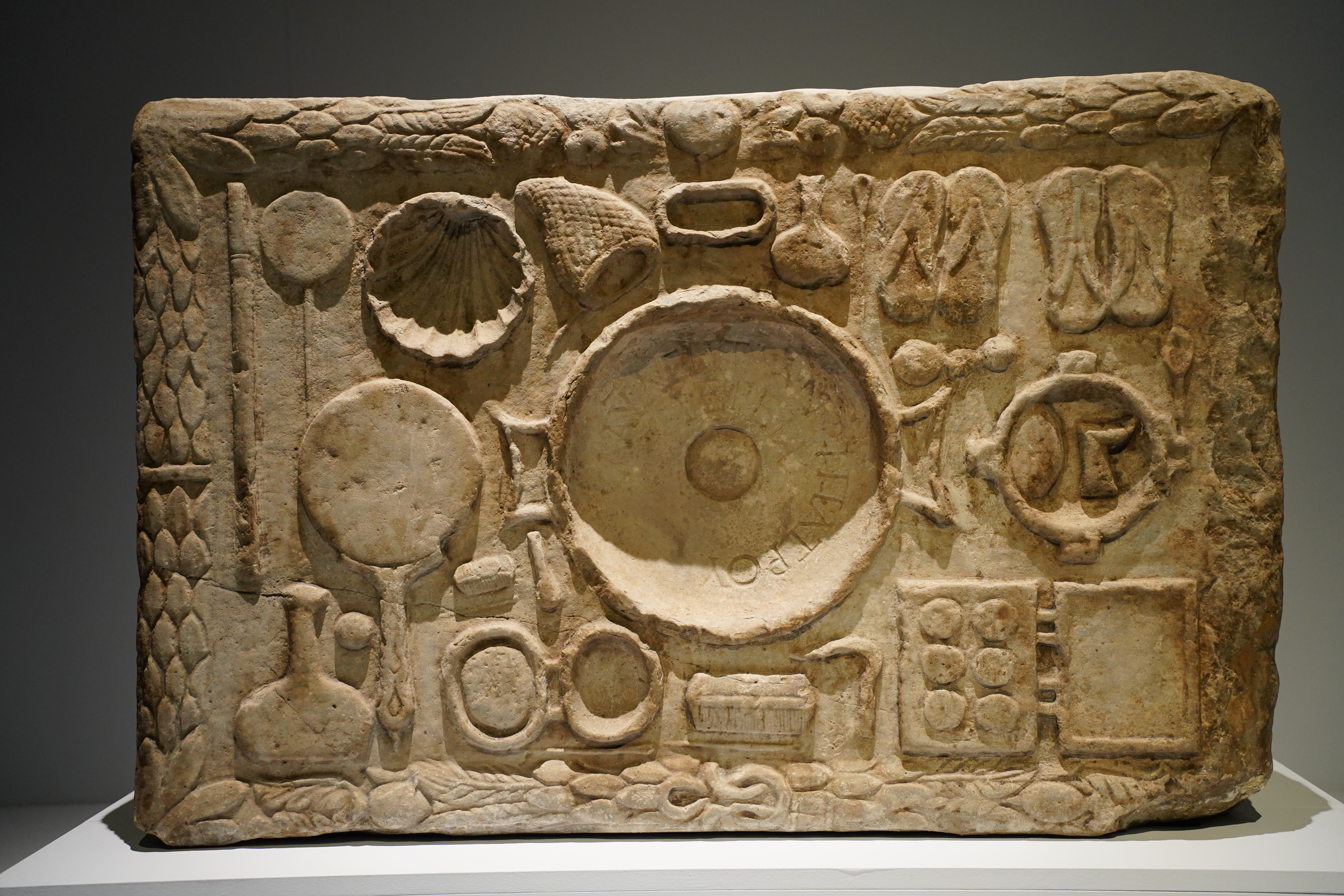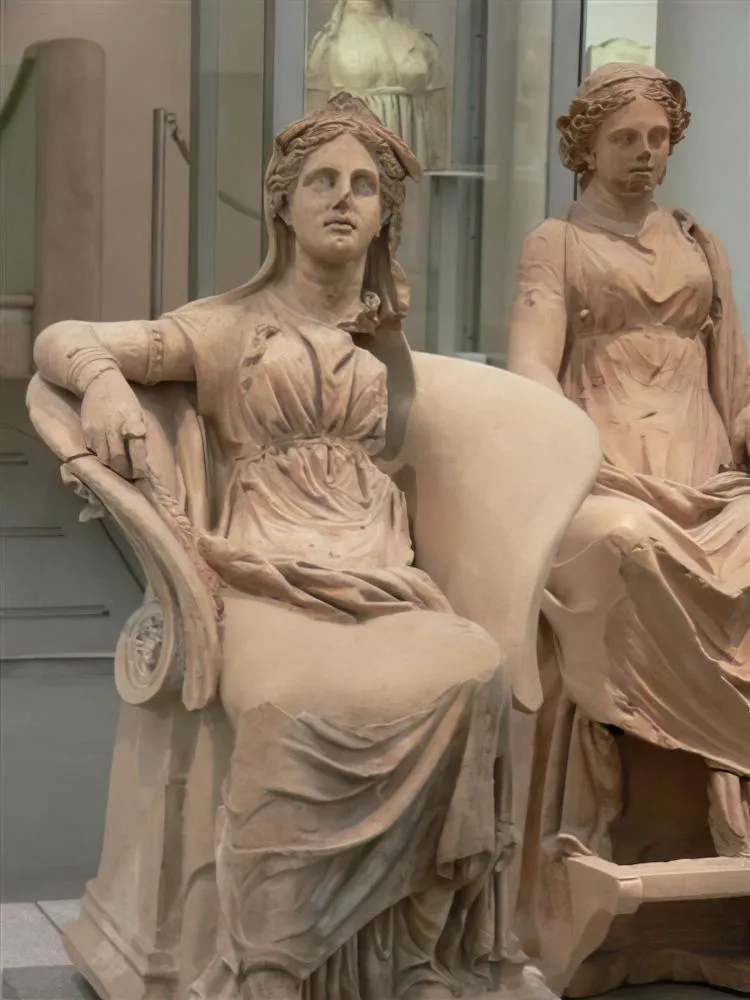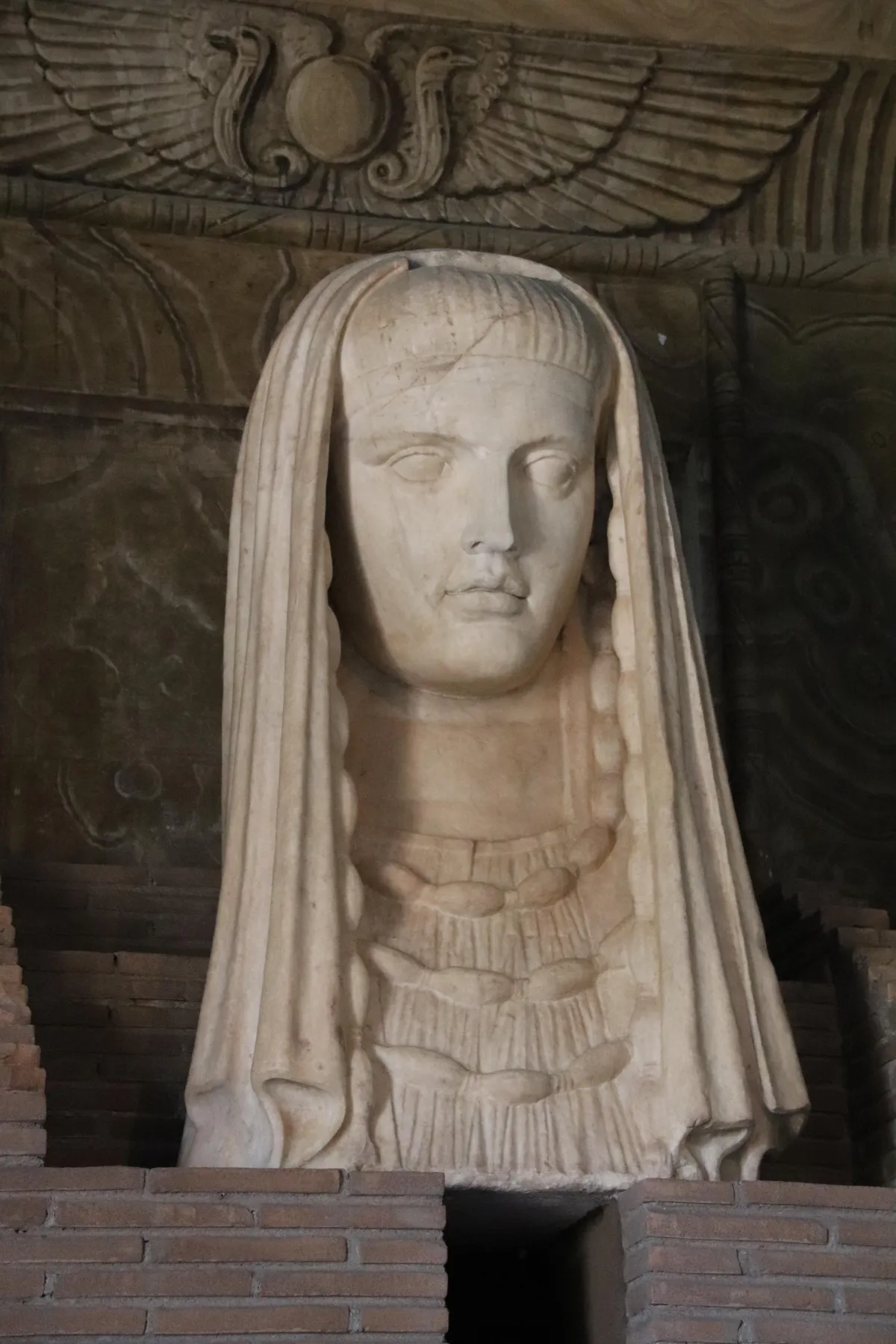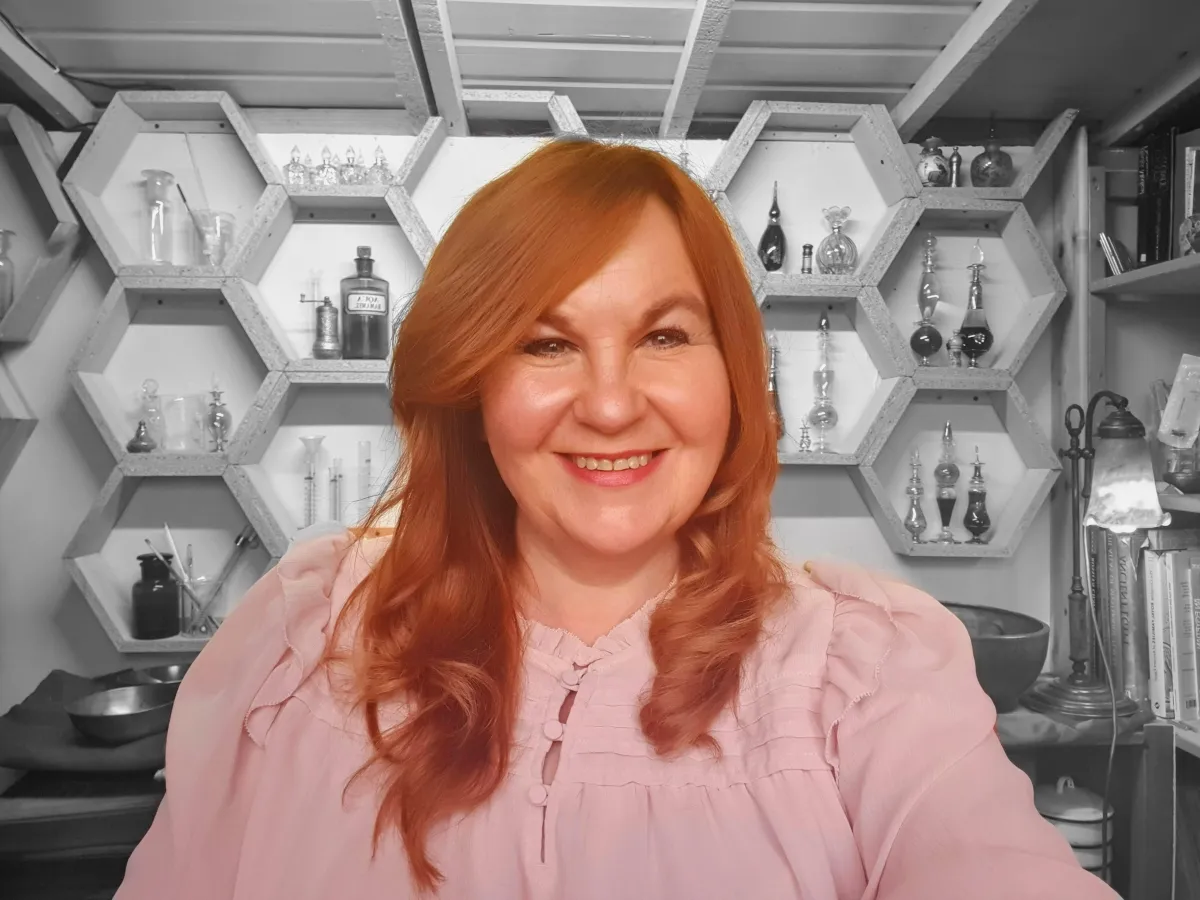Grecian Mystery School
Demeter Goddess Power

Demeter Goddess Power WithIn You
Online Prerecorded Course
Use essential oils and guided meditation to explore your Demeter goddess powers and how she may be working in the shadows trying to derail you.
Carl Jung proposed that certain universal archetypes exist in all of us. Some have a continual pull on us, others come and go as we move through life.
These gods and goddesses within us, create patterns of behaviour, certain predispositions towards certain illnesses and even predictable psychiatric traits. Perpetually pulling our strings, like invisible puppeteers, they can be powerful friends if they are brought into the light, but fickle saboteurs as they remain unseen by us in the shadows.
This course was inspired by the work of Jungian psychologist Jean Shinoda Bolen and her seminal work"Goddesses in Everywoman".
What is Demeter Goddess of?
Demeter was Goddess of The Harvest.
It was she who was responsible for abundance in life and for fertility.
She was, what Jung called, a vulnerable goddess, in that her daughter – the Kore (means Maiden) was snatched by Hades into the Underworld.
The dreadful crime against her caused a dreadful depression and a desire to withdraw from the world that drove the Earth into famine.
As an archetype, she rules the nurturing and motherly side of our personality.
Your Demeter goddess powers are how you nurture things through life, be that child or vocation.
The dark side of the Demeter goddess powers is her rage when she cannot fulfill that need to take care, and the ways she will manipulate to get that opportunity to regain her caring role again.
Hold a Mirror Up To Your Own Demeter Goddess Power
Together, over five classes, we’ll aim to meet this archetype in our own psyches.
How prevalent is our own personal Demeter goddess' power to mother?
Of course, for some, even though the desire to nurture is strong, maybe the biology does not match, and motherhood never comes.
But the Demeter goddess power still needs something to flow through, and for these women, motherhood can sometimes be replaced by vocations in the caring services, or in humanitarian endeavours. For other women, growing businesses takes the place of raising a child.
But the Demeter archetype has a dark side. Rather than facing up to the fury she feels at crimes commited against her, (in her myth, her child is abducted, then she is raped while she searches for her) this woman tends not to act on her rage to get even.
Instead she turns her rage inwards, and sadness takes its place.
Now the Demeter goddess power is subverted, and for some women that withdrawal of powers in the world can be catastrophic, bringing in deep depression and a volcanic rage that bubbles like lava below the surface.
Demeter Goddess Power in Overdrive
The protective element can, in some cases, become out of perspective.
Often raising the offspring overtakes every other part of her life, and that can be smothering and suffocating for her children.
Women with an out of control Demeter goddess power can run the threat of her children turning against her.
Or perhaps, none of that exhibits anything problematic, that is, until the child leaves the nest. Then poor Demeter is bereft. Now her life is empty, her connection and social life has gone and, cruelly, this is often the time when hormonal changes are rife too, conspiring to bring her down.
This work seeks to insulate women against the weaknesses and pitfalls that the Demeter goddess power exploits to derail women, and supports them in finding ways to harness the the power of one of the most powerful goddesses human history has ever seen.
Some Of The Themes We Explore
Our relationship with the Mother Archetype.
That comes from several angles.
Those of us that are mothers, in the traditional sense, whether that be of children who have lived or are living and those who are sadly not, for whatever reason that may be.
Maybe we are mothers of people who are not related to us by blood.
Actually for some that might be a complex relationship with partners who we parent, for example.
Or it might be how we create, give birth and manifest projects, businesses etc.
We all have projects that are “Our Babies” and our relationships to that.
Finally, we all began in a relationship with our own mothers, of course.
Our relationship with nurturing and the manifestation of depression in our psyche.
How we deal with anger and confrontation, and how we withdraw our power towards others, and even withdraw it from ourselves.
How we put “Our Baby’s” needs before our own.
We’ll contemplate which parts of the Demeter goddess powers seem to be healthy, which come from fear or other shadowy places, and which might be outdated scripts.
Who is This Course For?
Whilst we will start with Demeter, who is clearly the fertile mother, there is no requirement to be a menstruating woman, or a parent of a child. The crone has as much wisdom to share here, as the maiden.
Neither is there even a need for you to possess a womb.
Perhaps you were not born a woman, but identify as one, or you are a man who identifies strongly with this feminine healing energy.
This course is accessible to qualified and non-qualified aromatherapists, and although these are indeed women's rites, they are pan-religious, focusing on women, rather than paganism, and are available to all ages and genders.
If you feel that the work may speak to you, then you are welcome here.
Essential Oils for The Demeter Goddess Power Work
The Romans called Demeter "Ceres", as in cereal.
So, using seed and grass oils we’ll call on ancient Greek meditations and contemplations to bring our Demeter goddess power into the light.
The oils we use for the Aromythology of Demeter Goddess Power are:
Melissa essential oil or hydrolat - Melissa officinalis*
Palmarosa essential oil - Cymbopogon martinii
Black Pepper essential oil - Piper nigrum
Lemongrass - Cymbopogon flexuosus
Coriander seed - Coriandrum sativum
Vetiver - Vetiveria zizanoides**
*Notes about Melissa essential oil.
I am torn about whether I should make Melissa essential oil a mandatory oil for Demeter Goddess Power course, because it is a prohibitively expensive essential oil.
Eventually, I have made the decision that, since it is only in the course so you know what Melissa smells like (rather than it being there for any therapeutic part of accessing your Demeter goddess power), I have decided to say "Source melissa in whatever whay you can".
If you have it growing in your garden, fantastic, but that will only be useful in the spring and summer, since the citral dies off with the flowers, and it loses its bright lemony fragrance. It's the lemony fragrance you want. If it is summer, and you have that fragrance, fabulous.If it is winter, you'll need to source something else.
When distillers produce Melissa essential oil, they will also (or often, solely) produce what I call a hydrolat, and some people call a hydrosol. Essentially this is the water left over from the distillation, which leaves some parts of the plant behind that would not be in the essential oil, and some tiny amounts of essential oil. Melissa hydrosol is an important medicine in its own right, smells just right, and is perfect for this work.
Frances makes a beautiful one at essenciescat.cat, but they are easy to find from most producers. This would be the way I would go for this work.
There is also a lemon balm tea, but it is made with leaves that are dead. Their smell is lovely, but sadly not right for this work.
*Notes about Vetiver essential oil
I've also recommended vetiver. This time there is a therapeutic reason, but the smell is not important. So have a look in your oils to see if you have another to supplement it instead, before you buy new.
The reason it is there, is this work is designed to push your energy upwards. Your frequency shifts. When I do it, it can make me feel like I am flying out of my body. That's one of the signatures of working with Melissae medicine. You tend to head into a bee space. In the case of the honeys, that bee space can be flight.
That's fine during the meditations, but when you go back to the mundane, you need to be able to feel fully like yourself to do that. I have recommended Vetiver because it brings the energy right back down into your body. Substitute oils could be Myrrh essential oil, Sandalwood essential oil, or Patchouli essential oil. Thes are all heavy enough base notes to have this similar grounding effect. Feel free to replace it with one of these if needed.
In all other cases, the prescriptions are set. Please source black pepper, coriander seed, lemongrass and palmarosa essential oils to do this work.
Course Details
This course is made up of an introduction to Melissa work then four lectures.
Each lecture also has its own creative visualisation meditation.
In total then, this course is made up of 10 videos.
These can be done at your own pace, although it is suggested that meditations are done fairly quickly after each week's learning if possible
Written, narrated and created by Elizabeth Ashley. Based on the "Goddesses in Every Woman" work by Jean Shinoda Bolen.
It is not an examined course.
Archeological Record of Demeter Goddess Power
Marble panel with representations of typical feminine toiletries: two mirrors, a hairnet, a spoon, boxes, comb, shell for creams, etc. There are also two pairs of sandals.
Thanks to the inscription in Greek, we know that this relief was dedicated by Claudia Ageta, a granddaughter of a Roman senator from Sparta, in present-day Greece.
Claudia Ageta was a priestess of Demeter, Greek goddess of crops and agriculture, hence wheat and barley above and below. This relief was dedicated to Demeter, in his sanctuary near Sparta around 170 AD. From the British Museum, inv. 1861.0523.2.
Wikemedia commons. Author:
TimeTravelRome

Votive sculpture of Demeter or Kore from a sanctuary in the Valle Ariccia Roman 4th-3rd century BCE in the Museo delle Terme di Diocleziano (Rome)
Wikemedia commons: Photographer Mary Harrsch

Bust of Isis-Sothis-Demeter
Emperor Hadrian's Villa
2nd Century CE
This is called a synchretism, where two pantheons come together. Isis, the great mother of Egypt, is conflated with Demeter, but also Sothis, who is the star, Sirius.
The heliacal rising of Sothis signalled the flooding of the Nile which was the source of fertility in Egypt.
Melissae priestesses were married women, with children, Married women were veiled. Bees wings are also veiled.
It is in the Gregorian Egyptian Museum, Vatican Museums, Vatican City, Rome, Italy.
Picture: Wikimedia commons. Photographer: Gary Todd.

Course Tutor

Elizabeth Ashley wrote this course after completing publication of her book Meeting The Melissae, the Ancient Greek Bee Priestesses of The Goddess Demeter.
She is a clinical aromatherapist with over 30 years professional experience and the inventor of the modality Aromythology.
You can find out more about Elizabeth Ashley here.
PS Don't forget to head over to the Scent Sorcerer's Membership area to find others who have done the Demeter Goddess Power work.
Feel free to record any insights or thoughts you have from your Demeter Power Work or just to hum out with other bees.
.
